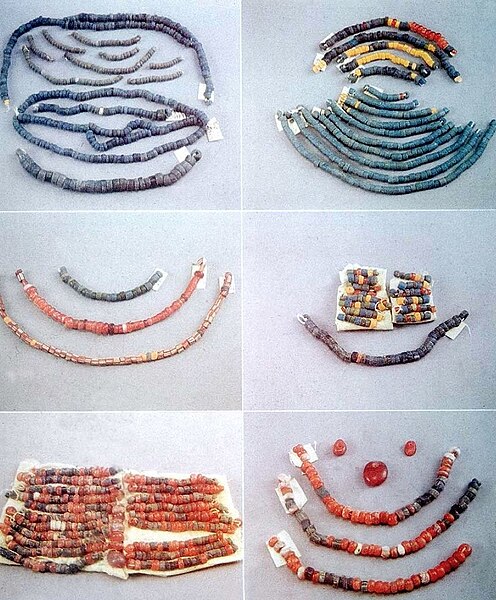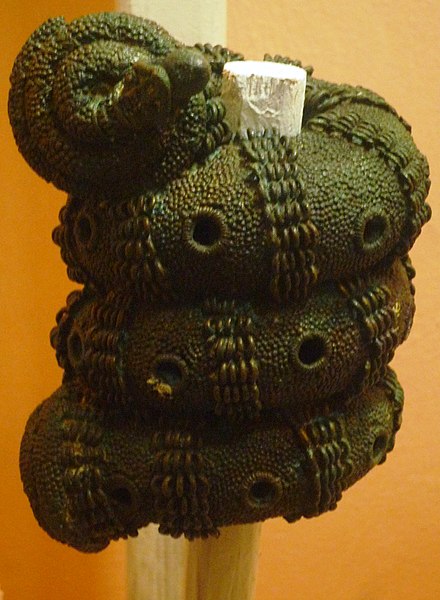The archaeology of Igbo-Ukwu is the study of an archaeological site located in a town of the same name: Igbo-Ukwu, an Igbo town in Anambra State in southeastern Nigeria. As a result of these findings, three excavation areas at Igbo-Ukwu were opened in 1959 and 1964 by Charles Thurstan Shaw: Igbo Richard, Igbo Isaiah, and Igbo Jonah. Excavations revealed more than 700 high quality artifacts of copper, bronze and iron, as well as about 165,000 glass, carnelian and stone beads, pottery, textiles and ivory beads, cups, and horns. The bronzes include numerous ritual vessels, pendants, crowns, breastplates, staff ornaments, swords, and fly-whisk handles.
9th century ornamental staff head, 9th century, bronze
9th century Glass beads from Igbo-Ukwu
Bronze ornamental staff head; 9th century; Nigerian National Museum (Lagos)
Bronze ceremonial vessel in form of a snail shell; 9th century; Nigerian National Museum
Igbo-Ukwu is a town in the Nigerian state of Anambra in the south-central part of the country. The town comprises three quarters namely Obiuno, Ngo, and Ihite with several villages within each quarter and thirty-six (36) administrative wards. It is also bordered by Ora-eri, Ichida, Azigbo, Ezinifite, Amichi, Isuofia, Ikenga and some other towns.
9th century Igbo-Ukwu bronze ceremonial staff head
Human and ram's head pendants from Igbo-Ukwu in the British Museum
Bronze pot, Igbo-Ukwu
Bronze ceremonial vessel in form of a snail shell, 9th century, Igbo-Ukwu






